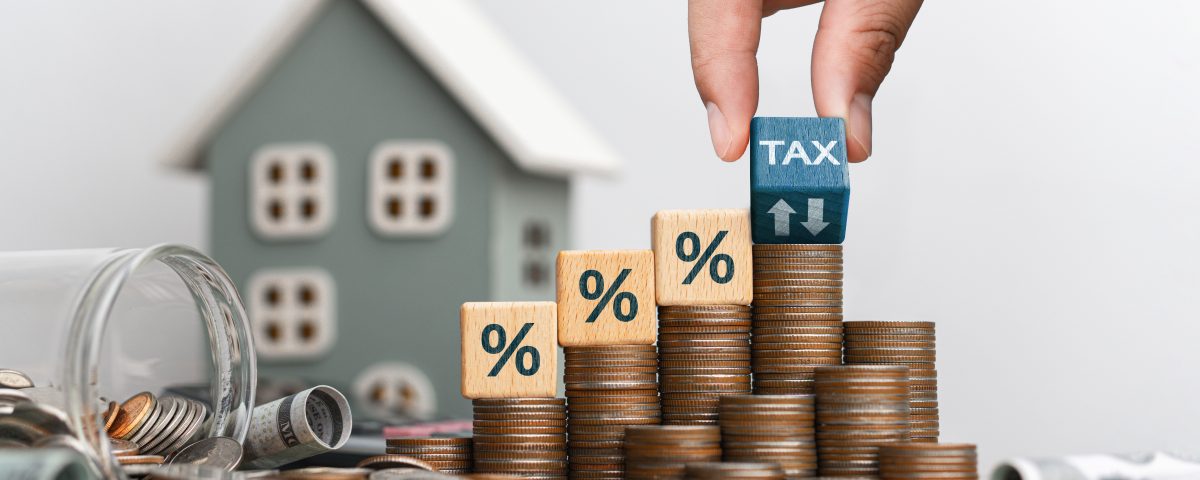Understanding the Impact of the Australian Property Market on Your Tax Returns

Top Tax Tips for Business Owners in Melbourne
March 5, 2025
Business Plan vs Business Strategy: What’s the Difference and Why Both Matters
March 15, 2025While there are many kinds of property taxes in Australia, the Australian property market will only directly impact your tax returns if you own an investment property (a home from which you earn rental income) or if you’re selling a home.
By understanding how property market fluctuation impacts your tax obligations and the exemptions that apply to you, you can plan ahead while making informed financial decisions and potentially reducing your tax liability. While taxes can seem complex, we’ll help clear things up by discussing capital gains tax on property and tax on investment property in Australia.
A Breakdown of Property Tax in Australia
Property tax in Australia is a broad term that refers to local government taxes relating to property buying and ownership, such as land taxes, council rates, and stamp duty. However, these taxes are typically linked to the value of the property or land rather than your income. While these taxes are impacted by the property market, they do not typically affect your tax returns.
The only exception to this rule is if you work from home—in which case, you can claim some of your rent and bills back on your tax returns!
Tax on Investment Property in Australia
Tax on investment property in Australia functions differently from standard property tax, as it primarily applies to rental income and capital gains. If you own an investment property, any rental income you earn is considered assessable income and must be declared in your tax return. This income is taxed at your marginal tax rate.
Deductions on Your Tax Returns
While rental income is taxable, the good news is that you can claim deductions on various expenses associated with your investment property, including:
- Mortgage interest.
- The cost of any repairs and maintenance.
- Property management fees.
- Council rates.
- Depreciation (the drop in value of the property).
In Australia, if your investment property expenses and mortgage payments are more than the rental income you earn for that property, you may be eligible for negatively gearing benefits. This means you can offset the loss against your other taxable income, potentially reducing your overall tax liability. Property investors commonly use this strategy to improve cash flow and long-term financial returns.
Capital Gains Tax on Property
Capital Gains Tax (CGT) on property applies when you sell an investment property for a profit. The capital gain is the difference between the property’s purchase price (including associated costs) and its selling price. This gain is added to your taxable income and taxed at your marginal tax rate.
If you’ve owned the property for more than 12 months, you may be eligible for a 50% CGT discount, meaning only half of the gain is taxable. However, if you sell within 12 months, the entire capital gain is taxed at your full marginal rate.
How to Reduce Capital Gains Tax on Property in Australia
Here are some strategies to help you reduce capital gains tax on property in Australia when doing your tax returns:
- Hold the property for at least 12 months.
- Offset your gains with capital losses from other investments.
- If the property was once your primary residence, you might be exempt from CGT for up to six years while renting it out.
- Hold the property in a self-managed super fund (SMSF) and sell in retirement—CGT may be significantly reduced or even eliminated.
Want to Learn More About How the Australian Property Market Impacts Tax Returns?
Whether property values are rising or falling, these changes can influence the rental income you declare on your investment and the capital gains tax (CGT) you may owe when selling. Want to learn more about capital gains tax on property or property tax in Australia? Speak to a property tax accountant and make the most of the tax deductions you’re entitled to.
At JCB Accounting, our tax consultants in Melbourne can help you keep detailed records of your expenses and offer professional advice to help you maximise your investment’s profitability and ensure you’re making the most of available tax benefits. Contact us today!




